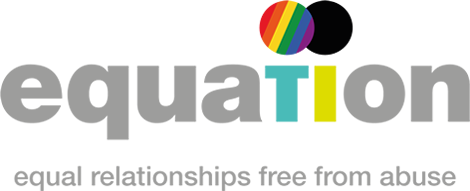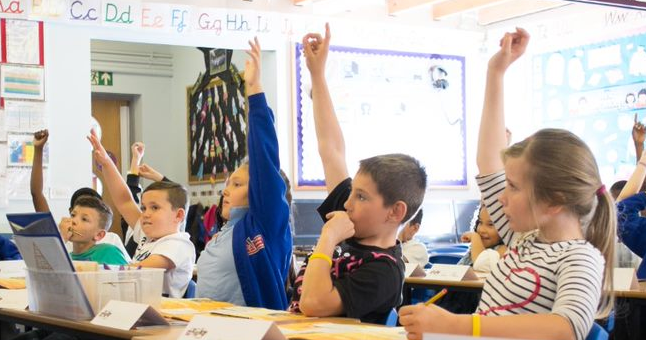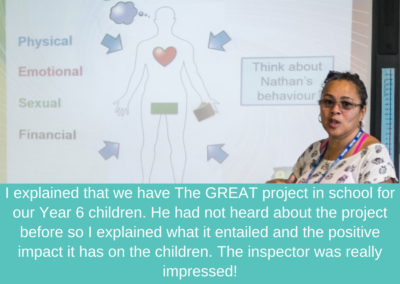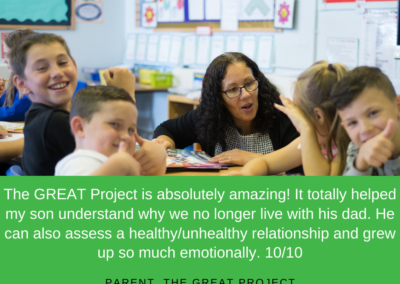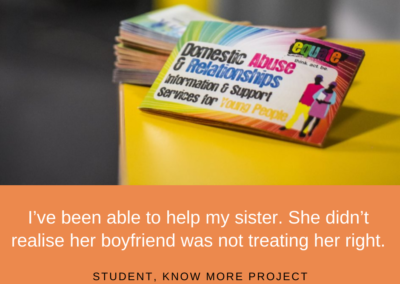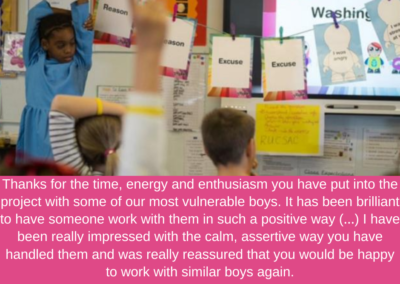Relationships and Sex Education (RSE) was due to become compulsory in all schools this year. However, due to the disruption that Covid-19 has had on the education system, this has now been postponed for another year. While it could be argued that this postponement is needed to relieve pressures on schools as they adapt to new ways of delivering education, it can’t be ignored that the impacts of Coronavirus on domestic abuse and violence has been severe. RSE is needed now more than ever. Over the past 3 months, children and young people have been confined to their homes and for many this is not a safe place to be. It is found that 1 in 5 children and young people witness or are exposed to domestic abuse at home, or in their own intimate relationships. During the lock down period in the UK, Women’s Aid found that 1 in 3 of survivors being supported with children said that there was an increase in their perpetrator directing abusive behaviours towards their children. Research around Childline usage during this time has also increased by a third, with many of the discussions being around the impact of lock down on family relationships. Overall, it has been reported that cases of abuse have escalated for many during the pandemic, Refuge have reported a 25% increase in calls to the helpline and the number of women killed each week as a result of domestic abuse and violence has risen from 2 murders per week to 5. It is important to remember that there are many barriers for survivors accessing support, the real numbers will be much higher than those reported here. With children and young people unable to attend school, many have been witness to these unhealthy and abusive behaviours. RSE is vital to helping children and young people impacted by domestic abuse access support; reducing the harm that is caused as they move forward through their lives and academic studies. Read on to find out why.
From September 2021, Primary schools will need to ensure they offer relationships education to their pupils and secondary schools will be required to deliver both relationships and sex education. In announcing these plans, the government has acknowledged the benefits of RSE both to children and wider society, particularly with reference to the prevention of domestic abuse. The plans have been received as a welcome development by many, including schools where this education is already being delivered and the positive impact can be seen. Many schools already offer RSE with many doing it well. The new reforms intend to ensure that all children and young people have the same access to a universal provision.
Equation have been delivering domestic abuse awareness and healthy relationship education to young people in schools across Nottingham City and Nottinghamshire via our Great Project and Equate Package for many years and are big believers in the following five outcomes our projects and other good quality RSE can provide.
1) Increased Understanding of Relationships
RSE is vital in ensuring all young people have the opportunity to explore and learn about healthy relationships. RSE projects allow them to fully understand what relationships are, who they have them with and what the qualities of a healthy relationship look like. If young people have access to well-designed RSE they can begin to explore what relationships mean to them, what they consider to be important in a relationship, and what they themselves can offer in their own existing and future relationships.
2) Heightened Aspirations
Young people accessing relationships education will increase their aspirations for a healthy relationship, and this reduces their vulnerabilities to experiencing an unhealthy relationship. Young people will be able to recognise the warning signs of unhealthy relationships more readily. This is something that can otherwise be difficult for young people, as well as adults who did not receive relationships education. Recognising the signs of an unhealthy relationship is likely to increase their confidence that they deserve better, and encourage them to seek support.
3) Improved Confidence and Self-esteem
Young people are much more likely to have healthy, positive relationships when they have high levels of confidence and self-esteem. Relationships and sex education should not overlook the importance of ensuring young people understand positive coping strategies, know what they can do to make themselves feel good and how to support others to increase their own confidence. If a young person has low self-esteem they might feel that they need to have an intimate relationship to make themselves happy; this can lead to unrealistic expectations of the relationship and the young person may not be as happy as they expected. Encouraging young people to be comfortable with who they are before they begin a relationship can have a positive impact on the relationships of young people. It is important that young people know how to love themselves, know their self-worth and know that they and others deserve to be happy.
4) Better Understanding of Consent
Alongside healthy relationships education, young people also need to be able to access information about sex and consent. This is why Equation delivers sessions to young people on personal space. These sessions allow the young people to explore their rights and responsibilities over their own and other people’s bodies, the complexities of sex and consent and to develop a clear understanding of the legalities of consent. Young people often feed back to Equation after these sessions that they didn’t know about consent before; they want information to make free and informed decisions within relationships.
5) Prevention of Domestic Abuse
1 in 4 women experience domestic abuse at some point in their lives. By understanding more about relationships, young people become better equipped to identify when things are not right and feel more confident and supported in speaking out. RSE education increases the chances a child will know where to go for help and support should they ever need it. Even in instances where domestic abuse is not able to be fully prevented via RSE (for example, if it is already occurring within the child’s home), the harm it can cause can be significantly reduced.
How you can help
No matter how much time, money or resources you can afford to give, your support will make a difference.
£10
Give monthly
Could pay for four children
to take part in our early intervention projects
£30
Give once
Could pay for one primary school child to receive our healthy relationship education program
Support equation
Check out the other ways you can support us
